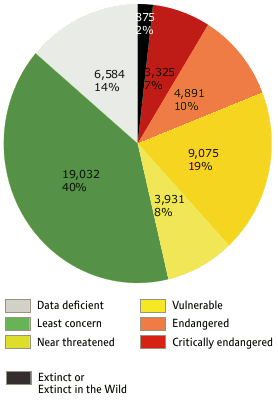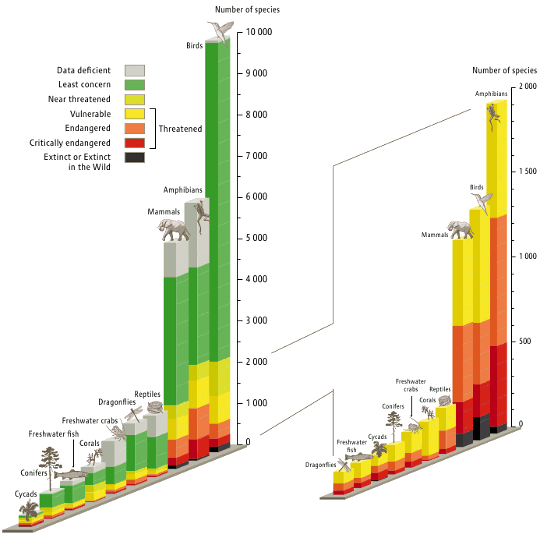Mobile number portability will be rolled out from Oct. 31
The telecom regulator on Thursday said mobile number portability (MNP) will be implemented nationwide from October 31, ruling out any further delay.
The MNP is a service that allows a mobile user to change his operator while retaining the number.
"There will be no further delay in the implementation of MNP," the telecom regulatory authority of India (TRAI) Chairman, Mr J.S. Sarma, said here.
The Department of Telecom (DoT) on Wednesday said the operators must ensure that all inter-operator tests for porting the numbers from one service provider to another are completed before September 1, 2010.
The Dot made it clear to all telecom operators that in case they fail to implement MNP as per the scheduled deadline, they will be barred from launching any new commercial services from September 1.
"It has been decided that permission to launch commercial service in any area with effect from September 1, 2010 shall be given to only those licensee(s) who are MNP compliant," said a DoT note.
Mobile service providers - Bharti Airtel, Reliance, Vodafone Essar, Tata Tele, Idea, STel and Aircel - are getting ready to launch high-speed 3G services from next month.
State-owned telcos Bharat Sanchar Nagar Nigam and Mahanagar Telephone Nigam Limited have said they are ready with the infrastructure to implement the MNP service.
The earlier June 30 deadline for the implementation of MNP was deferred as the operators were not ready with the infrastructure to provide the service.
The MNP was to be implemented by December 31, 2009 in all the metro cities as well as in the states of Maharashtra, Gujarat, Andhra Pradesh, Karnataka and Tamil Nadu.
The deadline was then changed to March 31, 2010 and thereafter to June 30, 2010.
Asked about the rolling out of 3G services, Sarma said: "I see no reason to believe that there would be any delay."
Psychic looks for girl, finds woman's body
A psychic acting on a hunch that the body of a missing Sydney schoolgirl would be in a public park found the torso of a missing woman there instead, police said on Thursday.
Police have contacted the family of a 31-year-old mother not seen for two months but would not confirm a link with the headless, armless and legless corpse found wrapped in plastic sheet.
"It's very sad to say that an adult female torso has been found where the witnesses said they thought there was a body," the Chief Inspector, Mr Pam Young, told reporters.
"It's quite interesting that a woman had a sense or a feeling that it was worth her while to come to this particular part of the park."
The psychic was searching for a six-year-old girl missing from her Sydney home for almost two weeks.
"For those who believe in such things, I understand that the woman thinks that she might have some powers along that line," Young said. "I have certain strong feelings about people who claim they are psychic. I don't think it will help if we enter a discussion on that."
Russia's Agony A 'wake-Up Call' To The World
A wind turbine on an acre of northern Iowa farmland could generate 300,000 dollars worth of greenhouse-gas-free electricity a year. Instead, the U.S. government pays out billions of dollars to subsidise grain for ethanol fuel that has little if any impact on global warming, according to Lester Brown.
'The smartest thing the U.S. could do is phase out ethanol subsidies,' says Brown, the founder of the Washington-based Earth Policy Institute, in reference to rising food prices resulting from the unprecedented heat wave in western Russia that has decimated crops and killed at least 15,000 people.
'The lesson here is that we must take climate change far more seriously, make major cuts in emissions and fast before climate change is out of control,' Brown, one of the world's leading experts on agriculture and food, told IPS.
Average temperatures during the month of July were eight degrees Celsius above normal in Moscow, he said, noting that 'such a huge increase in temperature over an entire month is just unheard of.'
On Monday, Moscow reached 37 C when the normal temperature for August is 21 C. It was the 28th day in a row that temperatures exceeded 30 C.
Soil moisture has fallen to levels seen only once in 500 years, says Brown. Wheat and other grain yields are expected to decline by 40 percent or more in Russia, Kazakhstan, and Ukraine - regions that provide 25 percent of the world's wheat exports. Russian Prime Minister Vladimir Putin announced a few days ago that Russia would ban all grain exports.
Food prices will rise but how much is not known at this point, says Brown. 'What we do know, however, is that the prices of wheat, corn, and soybeans are actually somewhat higher in early August 2010 than they were in early August 2007, when the record-breaking 2007-08 run-up in grain prices began.'
Emissions of greenhouse gases like CO2 from burning fossil fuels trap more of the sun's energy. Climate experts expected the number and intensity of heat waves and droughts to increase as a result. In 2009, heat and fire killed hundreds in Australia during the worst drought in more than century, which devastated the country's agriculture sector. In 2003, a European heat wave killed 53,000 people but as it occurred late in the summer crop, yields were not badly affected.
If a heat wave like Russia's were centred around the grain- producing regions near Chicago or Beijing, the impacts could be many times worse because each of these regions produce five times the amount of grain as Russia does, says Brown. Such an event could result in the loss of 100 to 200 million tonnes of grain with unimaginable affects on the world's food supply.
'Russia's heat wave is a wake-up call to the world regarding the vulnerability of the global food supply,' he said.
The global climate is warming and most food crops are both heat and drought sensitive. Rice yields have already fallen by 10-20 percent over the last 25 years in parts of Thailand, Vietnam, India and China due to global warming, new research has shown. Data from 227 fully-irrigated farms that grow 'green revolution' crops are suffering significant yield declines due to warming temperatures at night, researchers found.
'As nights get hotter, rice yields drop,' reported Jarrod Welch of the University of California at San Diego and colleagues in the Proceedings of the National Academy of Sciences (PNAS) Aug. 9. Previous studies have shown this result in experimental plots, but this is the first under widespread, real-world conditions.
With such pressures on the world's food supply it is simply wrong-headed to use 25 percent of U.S. grain for ethanol as a fuel for cars, said Brown.
'Ethanol subsidies must be phased out and real cuts in carbon emissions made and urgently,' he said.
Commonwealth Games OC justifies deal with Fast Track
Stung by the CAG's interim report which has found discrepancies in some deals, the CWG Organising Committee on Thursday defended its broadcasting rights deal with Fast Track despite a high commission paid to them, saying the UK company had doubled the revenue target.
The Comptroller and Auditor General of India (CAG) in its interim inspection report has pointed out that Fast Track was preferred over Sports Marketing and Management (SMAM) despite a high comission and thus OC lost on revenue generation.
SMAM had offered its services for 12.5 per cent while OC gave 15 per cent to Fast Track.
OC secretary general, Mr Lalit Bhanot, said it was a well thought out decision to award the deal to Fast Track as they did not want to give too many contracts to SMAM, which already had bagged the sponsorship contract.
"Fast Track is a well known company in this field and we have to ensure that company which has the experience is given the job. They had done it in Melbourne and other Commonwealth Games. It was a very wise (decision) that we did not put all the eggs in one basket," Mr Bhanot said.
"Fast Track has almost doubled the revenue we targetted. I think it's fully justified and a proper procedure was followed and it was a decision taken by the Board that not to give both the contract to one firm despite the fact that they were charging less.
"But now the end result is that we have achieved double the target... we have earned more," he said.
The OC had recently scrapped its sponsorship deal with SMSM on grounds of 'non-performance', a claim that has been refuted by the Australian firm, which said the charges against it are "imaginary".
The CAG report, it is learnt, has also alleged that high profile officials such CWG chief, Mr Mike Fennel and CEO, Mr Mike Hoper, were involved in various discrepancies.
Mr Hooper refused to comment on the developement.
"I have not seen the CAG report myself. I have seen only media reports. I will ask OC to get us a copy of the CAG report. Will comment only after seeing it," Mr Hooper said.
South Africa: 'Children are Dying Needlessly'
By the time Thandi Khumalo* brought her seven-month-old daughter to the Red Cross Children’s hospital in Cape Town, help came too late. The infant had developed acute diarrhoea and Kwashiokor, a condition caused by severe protein and calorie deficiency, and died a few days after being admitted.
Khumalo, who is HIV-positive, had decided not to breastfeed her child, probably because health workers at her local clinic did not educate her about the fact that exclusive breastfeeding reduces the risk of transmitting the virus to the baby. And since Khumalo is unemployed and struggles to make ends meet, she was unable to buy formula for her child.
For months, Khumalo had fed her daughter mainly tea, which did not provide the baby with sufficient nutrition and which she prepared from an unclean water source.
Unfortunately, Khumalo’s case is not an exception. Experts say that young children in South Africa are bearing the brunt of the country’s failure to meet the Millennium Development Goals (MDGs) partially due to the state of the country's public health system.
In South Africa, HIV and childhood infections (such as diarrhoea and lower respiratory infections) are the leading causes of death for children under five, according to the South African Child Gauge 2009/2010, an annual review of the situation of children in the country, which was released on Jul. 27 by the Children’s Institute (CI) of the University of Cape Town (UCT).
The report shows clearly that South Africa has failed to reduce child mortality for the past two decades, since 1990. This means that the country will not be able to meet MDG 4, which aims to reduce child mortality by two thirds by 2012.
On other MDG targets for reducing child hunger, HIV and tuberculosis, South Africa is not making any progress, either, the report states. Although there have been some slow improvements for access to basic sanitation, education and gender equality.
'The bottom line is that, currently, children are dying needlessly in South Africa,' warned Professor Haroon Saloojee, head of the division of community paediatrics at the University of the Witwatersrand in Johannesburg, and one of the authors of the Child Gauge.
Poor child health causes a vicious circle of poverty and death that will have a lasting effect on generations of South Africans. Malnutrition, for example, leads to poor cognitive development, which in turn causes poor school performance, which means that affected children are likely have reduced career opportunities as they enter adulthood and thus a smaller chance to be economically successful and a higher risk of suffering from poverty.
'If we don’t address child health today, we are trapping children in a cycle of ill health and poverty. It is extremely important to break this cycle early on,' cautioned CI commissioning editor Lori Lake. She further noted that the indicators of the Child Gauge report are 'of extreme concern' since they show that young children bear the brunt of South Africa’s failure to address the MDGs.
Despite all this, child health is not made a priority in South Africa. 'We are calling for concerted action across government departments, led by the health department, to urgently improve child health in the country,' said Lake, who blames the 'ongoing and protracted crisis' in South Africa’s public health system for the lack of progress. 'We have known at least since 2000 that we are in trouble, but child health has still not been made a priority,' she lamented.
Health specialists believe South Africa will only achieve true progress in the field of child health if there is sufficient political will to do so. Professor Louis Reynolds, senior specialist at UCT’s School of Child and Adolescent Health, calls on government to 'put child health at the centre of the national development agenda' and ensure coherent action across all sectors of government. 'We need to make budgets available not only for primary health care, but also for sanitation, education and job creation,' he explained.
National health minister Dr Aaron Motsoaledi admits that 'there needs to be a renewed commitment to caring for children' if South Africa wants to reduce child mortality and calls on 'communities and health workers, researchers and policy-makers to place children first.' Health experts say they are relieved to see renewed political commitment from the national health department.
But it is not only about allocating more finances towards child health. It is also crucial to better manage available health budgets.
Saloojee says poor quality of basic services are often caused by inefficient management and use of financial and human resources, primarily due to poor leadership and the absence of accountability in the public health care system. The health department should therefore set clear norms and standards for all public health facilities so that they can be held accountable for their performance.
Saloojee suggests that, apart from bigger budgetary allocations towards child health, improved staffing ratios at clinics and community health centres should translate into shorter queues and better performance. He also recommends improving the quality of care at district hospitals through training and support from paediatricians and other health professionals.
80-yr-old struggles for ration
Aug. 11: An octogenarian from Pammal was made to run from pillar to post to prove that his ration card was genuine and not a fake as was branded by the state civil supplies department.
Mr Damodharan, a retired railway employee, has been residing at Anna Nagar, in the south Chennai suburb of Pammal, for the last three decades but last week, when he went to collect supplies from the ration store, the staff sent him away saying that his card was a fake. According to Mr Damodharan, his son had started living separately after getting married in 2004. After that his son’s name was deleted from the card but the officials had put a wrong address in his card.
“When I informed the St. Thomas civil supplies officials about the incorrect address, they corrected it. I was asked to receive ration from the Pammal-2 ration store. During the recent bogus card elimination drive, the officials even verified my card and told me that it was original. However, last week, the ration store staff said my card was a fake,” said Mr Damodharan.
“They also mentioned on the ration store notice board that my card was a fake. I complained to the higher officials and filed a petition,” he added. Admitting the negligence of his staff, Mr Veera Manikandan, assistant commissioner, civil supplies, St. Thomas Mount region, told this newspaper that the store staff was not aware of the ration store rules and regulations.
“It was the fault of the store-keeper. He was appointed recently and is not a trained staff. We have cleared the issue and apologised to Mr Damodharan. He will be provided all the products without fail in future,” he said.


 At the 1992 UN Conference on Environment and Development (the “Earth Summit”), the
At the 1992 UN Conference on Environment and Development (the “Earth Summit”), the 
